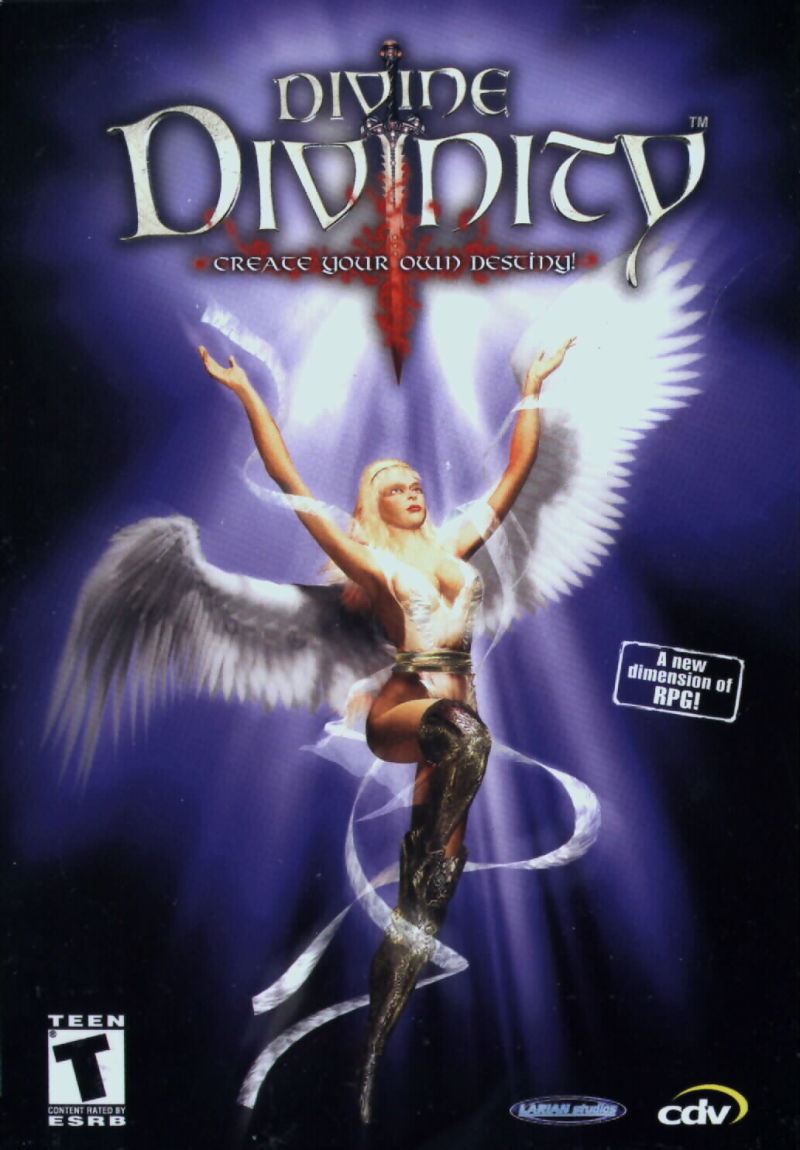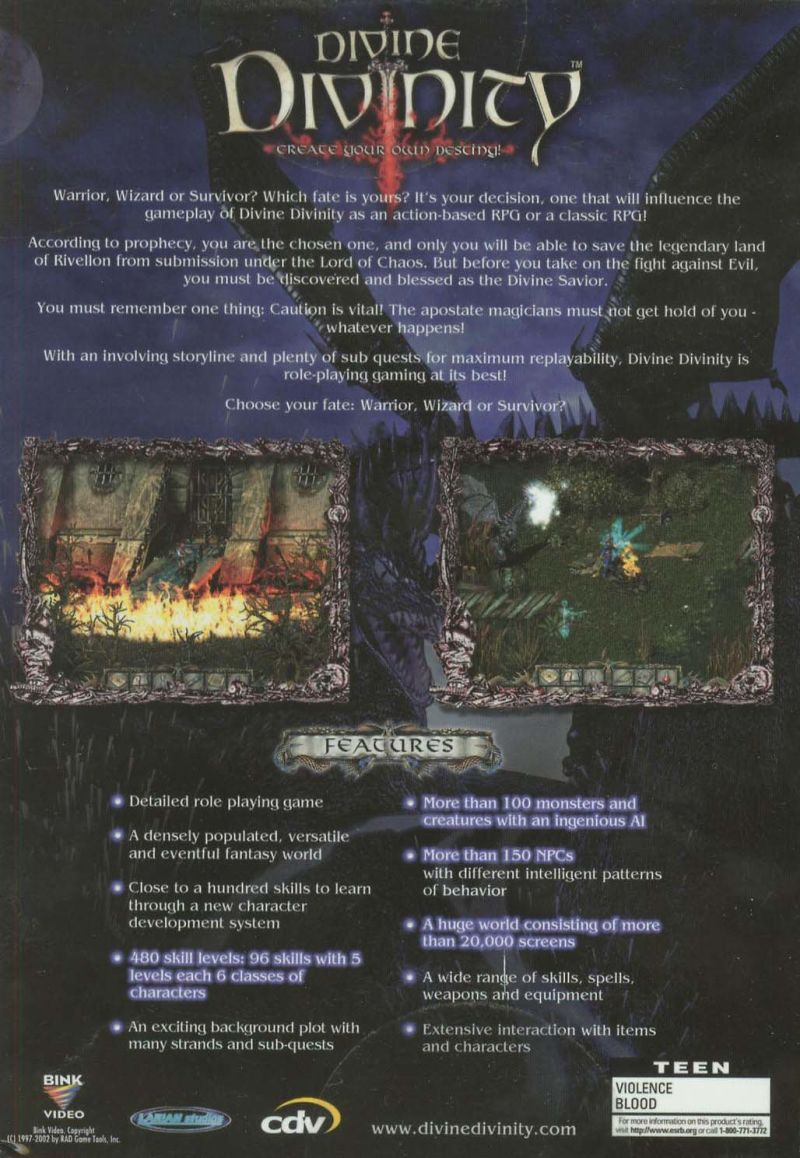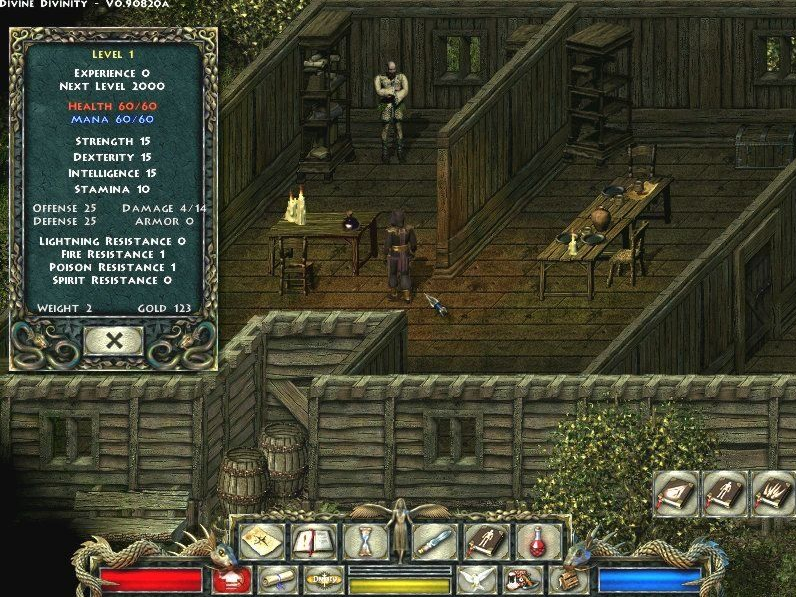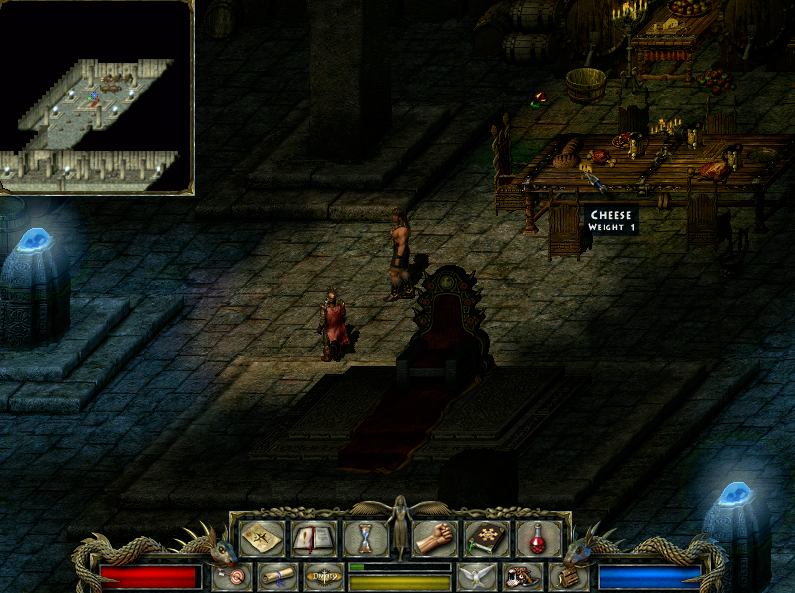Two thousand years ago, the wise mages of the Council of Seven sacrificed themselves to save the land of Rivellon. A Divine Order was established in their memory, sworn to protect the land from forces of evil. Now, growing unrest, corruption, and greed indicate that evil is near. The protagonist wakes up in a house in Aleroth, the town of healers, without any recollection of what happened beforehand. It appears that the leader of the healers has gone mad. The hero is asked to find a way to cure his predicament, which leads to a confrontation with higher powers, and eventually to a grand quest to unite the heirs of the Council and face the ultimate evil in battle.
Divine Divinity is a 2D action role-playing game with an oblique (rather than isometric) perspective, set in a fantasy universe. The game borrows certain elements from the Diablo series, most notably point-and-click action-oriented combat and item randomization. However, the game’s locations are not randomized, and it contains many features of traditional role-playing games such as interaction with NPCs and multiple dialogue choices.
The entire game world consists of over twenty thousand screens, each one being a seamless transition into the next with weather effects as well as day and night cycles. The main quest progression is linear; however, there are plenty of sub-quests available, many with multiple solutions, and the main character is pretty much free to travel to most parts of the map right at the beginning. Also notable is the ability to loot almost anything, not just equipment or healing items, but also chairs, candle sticks, and pretty much anything that isn’t nailed down (except tables).
In the beginning of the game, the player selects between three character classes for the protagonist, each coming in two variants (male or female): Warrior, Survivor, or Wizard. Each of these classes has four categories of unique skills. For example, the Wizard can specialize in elemental disciplines or choose the path of summoning various creatures, while Survivor skills include, among others, pickpocketing and alchemy. Each class can learn the skills of other classes, and the differences between them are mainly the starting skills and stat bonuses as they level up.
The game features a random item generator similar to, albeit less extensive than, Diablo. Items at certain locations have fixed names, but most attributes (like damage, armor rating, poison or stun effects, stat bonuses, or gem slots) are randomized. The player can also improve their weapons with gems dropped from enemies, or bought from shops; the dedicated player may even embark themselves on the quest to find the legendary weapons.
Cover Art:
Screenshots:





